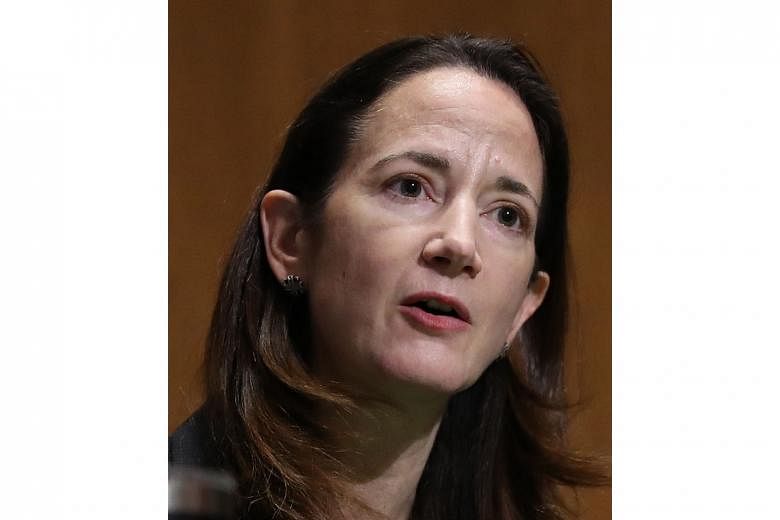Competition between the United States and China loomed large over Tuesday's Senate hearings of President Joe Biden's picks for the top foreign relations, treasury and defence posts in the Cabinet, signalling that at least some of the Trump administration's hard line against Beijing will continue under the Biden administration.
Secretary of State nominee Antony Blinken told a Senate panel that China poses the most significant challenge of any nation state to the US.
China under President Xi Jinping had "become more assertive in making clear that they seek to become the leading country in the world", he said.
"There are rising adversarial aspects to the relationship, certainly competitive ones, and still some cooperative ones when it is in our mutual interests," said Mr Blinken, an experienced career diplomat who rose to the State Department's second-highest post under the Obama administration.
In response to questions from senators, Mr Blinken said his plan to deal with China would involve tapping the US' sources of strength.
These included working with allies instead of denigrating them, leading in international institutions instead of ceding terrain to China, standing against human rights abuses in Xinjiang and democracy erosion in Hong Kong, and investments in America's military to deter Chinese aggression.
Mr Blinken said the US and China were engaged in a high-stakes rivalry to shape the norms and standards that other countries ascribed to, and that the US had an obligation to make sure its model carried the day.
"There is an increasing divide between techno-democracies, that is, technologically sophisticated countries that are also democracies, and techno-autocracies like China," said Mr Blinken.
"Whether the techno-democracies or techno-autocracies are the ones that get to define how technology is used... is going to go a long way in shaping the next decades."
Mr Blinken also said that the US commitment to making sure that Taiwan has the ability to defend itself against aggression will "absolutely endure" under the Biden administration.
He added that he also wanted to see Taiwan play a greater role around the world, including becoming a member of international organisations that admits non-states as members, and participating in groupings that did not admit non-state members in other ways.
In his prepared remarks, Mr Blinken vowed that the US would reclaim its global leadership mantle under his watch.
Washington would "outcompete China" while revitalising core alliances and teaming up to tackle common challenges with other countries, all the while acting with humility and confidence, he said.
"America at its best still has a greater ability than any country on earth to mobilise others for the greater good," said Mr Blinken, whose vision of American diplomacy was a marked change from outgoing President Donald Trump's "America First" policy.
In response to questions from senators, Mr Blinken said he agreed with outgoing Secretary of State Mike Pompeo that China's policies regarding Uighur Muslims amounted to an effort to commit genocide.
Earlier on Tuesday morning, Treasury Secretary nominee Janet Yellen said China "is clearly our most important strategic competitor". The US needs to take on China's abusive trade and economic practices, she said at her Senate confirmation hearing.
"China is undercutting American companies by dumping products, erecting trade barriers and giving illegal subsidies to corporations. It has been stealing intellectual property and engaging in practices that give it an unfair technological advantage, including forced technology transfers," said Dr Yellen, the former Federal Reserve chairman.
"These practices, including China's low labour and environmental standards, are practices that we are prepared to use the full array of tools to address."
If confirmed, part of Dr Yellen's job will be to decide whether to continue the Trump administration's actions against China, including tariffs on Chinese goods, blacklisting military-linked Chinese companies from US stock exchanges and banning Chinese social media apps over national security concerns.
Secretary of Defence nominee Lloyd Austin also addressed the challenge of China, saying he would work closely with the State Department.
"Globally, I understand that Asia must be the focus of our effort, and I see China, in particular, as a pacing challenge for the department," said Mr Austin, a retired general who focused mostly on the Middle East during his career and oversaw the withdrawal of American troops from Iraq.
There have been no announcements yet on when the Senate panels will vote on confirming Mr Biden's nominees. His hope for speedy confirmations could be delayed or complicated by the Senate's impending impeachment trial of Mr Trump.





